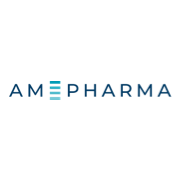recAP shown to improve skeletal and dental mineralisation in potentially new indication with high unmet medical need.
Bunnik, The Netherlands – AM?Pharma B.V., a biopharmaceutical company focused on the development of recAP (recombinant human Alkaline Phosphatase) for inflammatory indications, today announces that preclinical data on its drug candidate recAP, to treat the ultra rare disease Hypophosphatasia, have been published in the journal Bone. The senior investigator of the study is Dr. José Luis Millán, of Sandford-Burnham Medical Research Institute, La Jolla, CA, USA, and world-leading researcher in Hypophosphatasia.
The genetic disorder Hypophosphatasia is estimated to affect 1 in 100,000 new-borns and is a mineralisation disorder that results in soft bones (rickets or osteomalacia) and defects in teeth and periodontal tissues. In this paper, the authors show that recAP increased mineralisation of bone and teeth and prevented seizures.
In the study, mice with severe hypophosphatasia, due to a genetic defect (knock-out) in one of the genes encoding for alkaline phosphatase, were administered daily subcutaneous injections of recAP at doses of 1, 8 or 16mg/kg, from birth up to 53 days. This resulted in normal lifespans and body weights of the mice, whilst untreated mice died after 20 days. A combination of imaging techniques showed improved mineralisation in both cortical (compact) and trabecular (spongy) bone, as well as in secondary ossification centres in the longer bones. In the highest dose group, recAP showed improved molar tooth development and function. Furthermore, seizures, which are commonly associated with severe hypophosphatasia, were absent in treated mice and there was neither evidence of craniosynostosis (premature ossification of the skull), nor ectopic calcification (bone deposits in soft tissues).
“These are very interesting and compelling data indicative for the future clinical benefit of recAP in this orphan disease,” said Erik van den Berg, CEO of AM-Pharma. “Hypophosphatasia is a rare, devastating and potentially fatal disease without approved therapies.”
About AM-Pharma www.am?pharma.com
AM?Pharma is a biopharmaceutical company focused on the preclinical and clinical development of recAP (recombinant Human Alkaline Phosphatase) as treatment of acute kidney injury (AKI), ulcerative colitis (UC) and hypophosphatasia (HPP). Based on the strong results of the Phase II trials with bovine Alkaline Phosphatase in AKI and UC, AM?Pharma developed an innovative recombinant form of human Alkaline Phosphatase (recAP), which will be used in future trials and for commercialisation. In its most recent financing round in September 2014, the Company raised a €12.2M for the completion of Phase II study of recAP in AKI patients, as well as continued development of an oral formulation of recAP for UC patients.
About Hypophosphatasia
Hypophosphatasia is a rare potentially fatal inherited metabolic bone disease affecting 1 in 100,000 new-borns. It results from ALPL gene mutations, which lead to a deficiency of Alkaline Phosphatase (AP) and causes mineralisation disorders including soft bones (rickets or osteomalacia) and defects in teeth and periodontal tissues. Currently, there is no cure for hypophosphatasia and treatment is directed towards preventing or correcting the symptoms and complications. Some medications are being evaluated, although no proven medical therapy has yet been approved. recAP therapy in Hypophosphatasia might be an effective enzyme replacement approach, avoiding antibody formation, vascular calcification and craniosynostosis (premature fusing of the skull plates), whilst improving skeletal strength.
About recAP
AM-Pharma’s therapeutic candidate, recAP (recombinant Alkaline Phosphatase), is a proprietary recombinant human AP constructed from two naturally occurring human isoforms of the AP enzyme. This hybrid is highly stable and active, and has been optimised for treating inflammatory conditions. It is being developed as an injectable for the treatment of AKI and an oral formulation for UC. The enzyme is being produced by cGMP manufacture for preclinical and clinical trial supply and commercialisation.
